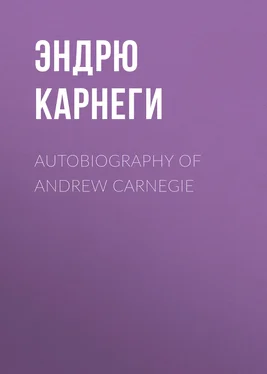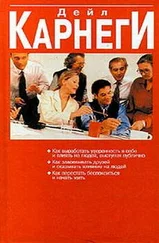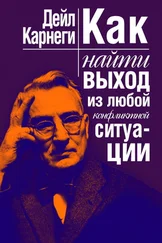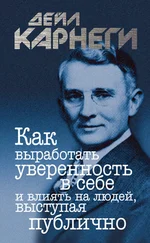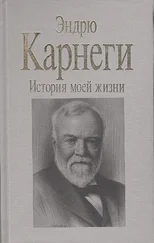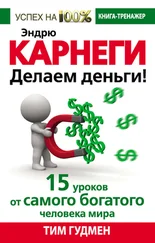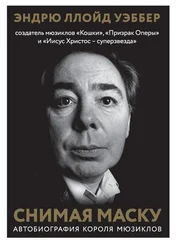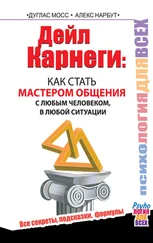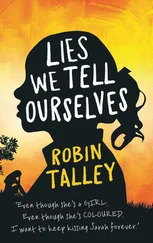Эндрю Карнеги - Autobiography of Andrew Carnegie
Здесь есть возможность читать онлайн «Эндрю Карнеги - Autobiography of Andrew Carnegie» — ознакомительный отрывок электронной книги совершенно бесплатно, а после прочтения отрывка купить полную версию. В некоторых случаях можно слушать аудио, скачать через торрент в формате fb2 и присутствует краткое содержание. Жанр: Биографии и Мемуары, foreign_antique, на английском языке. Описание произведения, (предисловие) а так же отзывы посетителей доступны на портале библиотеки ЛибКат.
- Название:Autobiography of Andrew Carnegie
- Автор:
- Жанр:
- Год:неизвестен
- ISBN:нет данных
- Рейтинг книги:3 / 5. Голосов: 1
-
Избранное:Добавить в избранное
- Отзывы:
-
Ваша оценка:
- 60
- 1
- 2
- 3
- 4
- 5
Autobiography of Andrew Carnegie: краткое содержание, описание и аннотация
Предлагаем к чтению аннотацию, описание, краткое содержание или предисловие (зависит от того, что написал сам автор книги «Autobiography of Andrew Carnegie»). Если вы не нашли необходимую информацию о книге — напишите в комментариях, мы постараемся отыскать её.
Autobiography of Andrew Carnegie — читать онлайн ознакомительный отрывок
Ниже представлен текст книги, разбитый по страницам. Система сохранения места последней прочитанной страницы, позволяет с удобством читать онлайн бесплатно книгу «Autobiography of Andrew Carnegie», без необходимости каждый раз заново искать на чём Вы остановились. Поставьте закладку, и сможете в любой момент перейти на страницу, на которой закончили чтение.
Интервал:
Закладка:
"The King sits in Dunfermline tower , 5 5 The Percy Reliques and The Oxford Book of Ballads give "town" instead of "tower"; but Mr. Carnegie insisted that it should be "tower."
Drinking the bluid red wine."
The tomb of The Bruce is in the center of the Abbey, Saint Margaret's tomb is near, and many of the "royal folk" lie sleeping close around. Fortunate, indeed, the child who first sees the light in that romantic town, which occupies high ground three miles north of the Firth of Forth, overlooking the sea, with Edinburgh in sight to the south, and to the north the peaks of the Ochils clearly in view. All is still redolent of the mighty past when Dunfermline was both nationally and religiously the capital of Scotland.
The child privileged to develop amid such surroundings absorbs poetry and romance with the air he breathes, assimilates history and tradition as he gazes around. These become to him his real world in childhood—the ideal is the ever-present real. The actual has yet to come when, later in life, he is launched into the workaday world of stern reality. Even then, and till his last day, the early impressions remain, sometimes for short seasons disappearing perchance, but only apparently driven away or suppressed. They are always rising and coming again to the front to exert their influence, to elevate his thought and color his life. No bright child of Dunfermline can escape the influence of the Abbey, Palace, and Glen. These touch him and set fire to the latent spark within, making him something different and beyond what, less happily born, he would have become. Under these inspiring conditions my parents had also been born, and hence came, I doubt not, the potency of the romantic and poetic strain which pervaded both.
As my father succeeded in the weaving business we removed from Moodie Street to a much more commodious house in Reid's Park. My father's four or five looms occupied the lower story; we resided in the upper, which was reached, after a fashion common in the older Scottish houses, by outside stairs from the pavement. It is here that my earliest recollections begin, and, strangely enough, the first trace of memory takes me back to a day when I saw a small map of America. It was upon rollers and about two feet square. Upon this my father, mother, Uncle William, and Aunt Aitken were looking for Pittsburgh and pointing out Lake Erie and Niagara. Soon after my uncle and Aunt Aitken sailed for the land of promise.
At this time I remember my cousin-brother, George Lauder ("Dod"), and myself were deeply impressed with the great danger overhanging us because a lawless flag was secreted in the garret. It had been painted to be carried, and I believe was carried by my father, or uncle, or some other good radical of our family, in a procession during the Corn Law agitation. There had been riots in the town and a troop of cavalry was quartered in the Guildhall. My grandfathers and uncles on both sides, and my father, had been foremost in addressing meetings, and the whole family circle was in a ferment.
I remember as if it were yesterday being awakened during the night by a tap at the back window by men who had come to inform my parents that my uncle, Bailie Morrison, had been thrown into jail because he had dared to hold a meeting which had been forbidden. The sheriff with the aid of the soldiers had arrested him a few miles from the town where the meeting had been held, and brought him into the town during the night, followed by an immense throng of people. 6 6 At the opening of the Lauder Technical School in October, 1880, nearly half a century after the disquieting scenes of 1842, Mr. Carnegie thus recalled the shock which was given to his boy mind: "One of my earliest recollections is that of being wakened in the darkness to be told that my Uncle Morrison was in jail. Well, it is one of the proudest boasts I can make to-day to be able to say that I had an uncle who was in jail. But, ladies and gentlemen, my uncle went to jail to vindicate the rights of public assembly." (Mackie.)
Serious trouble was feared, for the populace threatened to rescue him, and, as we learned afterwards, he had been induced by the provost of the town to step forward to a window overlooking the High Street and beg the people to retire. This he did, saying: "If there be a friend of the good cause here to-night, let him fold his arms." They did so. And then, after a pause, he said, "Now depart in peace!" 7 7 "The Crown agents wisely let the proceedings lapse.... Mr. Morrison was given a gratifying assurance of the appreciation of his fellow citizens by his election to the Council and his elevation to the Magisterial Bench, followed shortly after by his appointment to the office of Burgh Chamberlain. The patriotic reformer whom the criminal authorities endeavored to convict as a law-breaker became by the choice of his fellow citizens a Magistrate, and was further given a certificate for trustworthiness and integrity." (Mackie.)
My uncle, like all our family, was a moral-force man and strong for obedience to law, but radical to the core and an intense admirer of the American Republic.
One may imagine when all this was going on in public how bitter were the words that passed from one to the other in private. The denunciations of monarchical and aristocratic government, of privilege in all its forms, the grandeur of the republican system, the superiority of America, a land peopled by our own race, a home for freemen in which every citizen's privilege was every man's right—these were the exciting themes upon which I was nurtured. As a child I could have slain king, duke, or lord, and considered their deaths a service to the state and hence an heroic act.
Such is the influence of childhood's earliest associations that it was long before I could trust myself to speak respectfully of any privileged class or person who had not distinguished himself in some good way and therefore earned the right to public respect. There was still the sneer behind for mere pedigree—"he is nothing, has done nothing, only an accident, a fraud strutting in borrowed plumes; all he has to his account is the accident of birth; the most fruitful part of his family, as with the potato, lies underground." I wondered that intelligent men could live where another human being was born to a privilege which was not also their birthright. I was never tired of quoting the only words which gave proper vent to my indignation:
"There was a Brutus once that would have brooked
Th' eternal devil to keep his state in Rome
As easily as a king."
But then kings were kings, not mere shadows. All this was inherited, of course. I only echoed what I heard at home.
Dunfermline has long been renowned as perhaps the most radical town in the Kingdom, although I know Paisley has claims. This is all the more creditable to the cause of radicalism because in the days of which I speak the population of Dunfermline was in large part composed of men who were small manufacturers, each owning his own loom or looms. They were not tied down to regular hours, their labors being piece work. They got webs from the larger manufacturers and the weaving was done at home.
These were times of intense political excitement, and there was frequently seen throughout the entire town, for a short time after the midday meal, small groups of men with their aprons girt about them discussing affairs of state. The names of Hume, Cobden, and Bright were upon every one's tongue. I was often attracted, small as I was, to these circles and was an earnest listener to the conversation, which was wholly one-sided. The generally accepted conclusion was that there must be a change. Clubs were formed among the townsfolk, and the London newspapers were subscribed for. The leading editorials were read every evening to the people, strangely enough, from one of the pulpits of the town. My uncle, Bailie Morrison, was often the reader, and, as the articles were commented upon by him and others after being read, the meetings were quite exciting.
Читать дальшеИнтервал:
Закладка:
Похожие книги на «Autobiography of Andrew Carnegie»
Представляем Вашему вниманию похожие книги на «Autobiography of Andrew Carnegie» списком для выбора. Мы отобрали схожую по названию и смыслу литературу в надежде предоставить читателям больше вариантов отыскать новые, интересные, ещё непрочитанные произведения.
Обсуждение, отзывы о книге «Autobiography of Andrew Carnegie» и просто собственные мнения читателей. Оставьте ваши комментарии, напишите, что Вы думаете о произведении, его смысле или главных героях. Укажите что конкретно понравилось, а что нет, и почему Вы так считаете.
